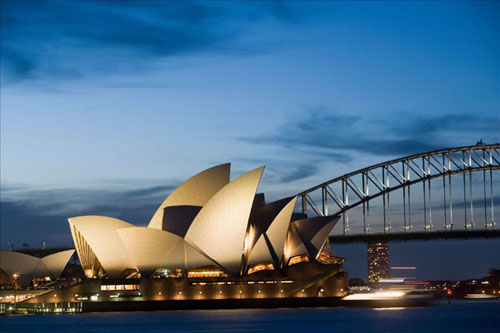Australia's Tasmanian tourism chiefs are considering erecting signs in Mandarin to make life easier for Chinese visitors.
Australia plans to erect signs in Mandarin to make life easier for Chinese visitors.
Australia's Tasmanian tourism chiefs are considering erecting signs in Mandarin to make life easier for Chinese visitors.
The island-state, the smallest of Australia's six states, has become a popular destination for Chinese visitors.
Communities along the state's east coast, which is home to tourist destinations such as the Bay of Fires conservation area and Freycinet National Park, are leading the push to introduce the signs, which they say will enhance the experience for Chinese tourists.
Mick Tucker, mayor of the Break O'Day Council which governs the state's northeast including the Bay of Fires, said visitors from China travelled to the region throughout the entire year.
"A huge population of Chinese tourists seem to be here 12 months of the year," Tucker said.
Tucker said that the region, which has a population of 6,500 that more than doubles during summer would the first in Australia to adopt the idea.
He said that the cost of erecting the sings would be minimal compared to the benefits it would bring.
"We like to think outside the square here and I think it will be paid back in spades," Tucker told the Australian Broadcasting Corporation (ABC) on Monday.
"We don't think there's anyone else doing it that we know of."
"To make sure when they come from the other side of the world, just something they can read in their own language (is) a nice gesture."
A study published in May by the China Outbound Tourism Institute said that many Chinese tourists did not enjoy their time in Tasmania, saying many of the state's businesses and tourist facilities such as restaurants and hotels closed too early.
Leo Seaton, a spokesman for Tourism Australia, said adapting signs was one measure that could win over Chinese tourists.
He said businesses and governments could go even further with the initiative to accommodate Chinese tourists.
"In the case of hotels having Mandarin speaking staff on the front desk, Chinese food options and even Chinese channels on television," Seaton suggested.
"For airports it might be Mandarin signage for the first point of entry, very simple measures and very symbolic."
